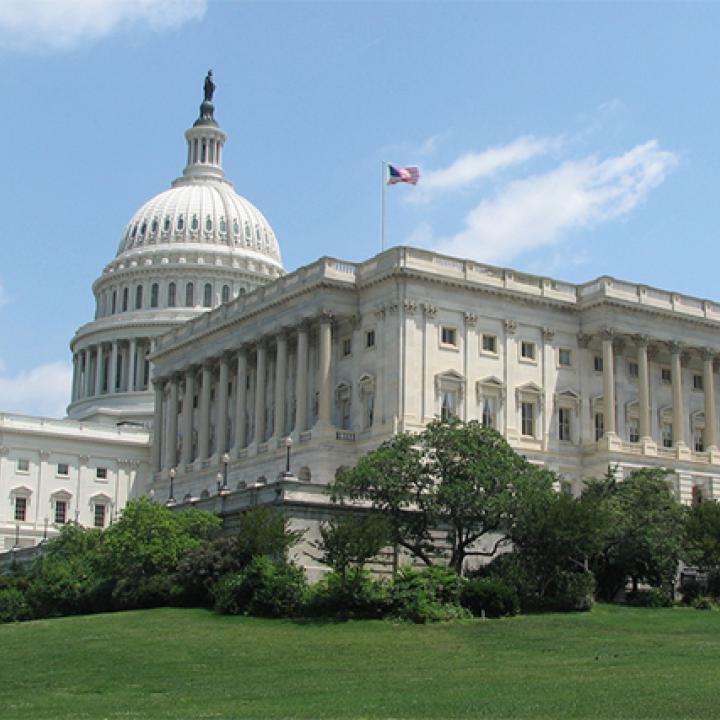
- Policy Analysis
- Congressional Testimony
Major Beneficiaries of the Iran Deal: IRGC and Hezbollah

As the nuclear agreement moves toward implementation, contending with the 'menacing behavior' of Iran's proxy groups and military elite should be at the top of the administration's agenda.
A few weeks ago, senior Saudi Hezbollah operative Ahmed al-Mughassil was detained in Lebanon and sent to Saudi Arabia, where he has long been wanted on charges of masterminding and carrying out the 1996 Khobar Towers bombing. Mughassil has been an intimate and longtime confidante of the IRGC and Qods Force, working closely with both Iranian and Lebanese Hezbollah operatives. His arrest and interrogation should reveal still more details about the nature of the relationships between the IRGC and Qods Force on the one hand, and Lebanese Hezbollah and its regional allies, especially in the Gulf, on the other. One can only hope that the timing of this arrest is the result of a renewed push to collect timely information about these groups' activities for the purpose of taking tangible action against them.
One area of inquiry and action that could yield particularly positive results would be to target, in fairly quick succession, a variety of Hezbollah front companies and logistics nodes around the world. A theme woven throughout this testimony is that Hezbollah relies heavily on such front organizations to carry out its operations, from Europe to Iraq and from China to Dubai.
In July, the Treasury Department designated one such network, which was focused on supporting the group's activities in Syria. Treasury described Abd al-Nur Shalan as "a businessman with close ties to Hezbollah leadership" who served as Hezbollah's "point person for the procurement and transshipment of weapons and materiel for the group and its Syrian partners for at least 15 years." Shalan, Treasury informed, "has been critical in keeping Hezbollah supplied with weapons, including small arms, since the start of the Syrian conflict." Shalan has been at the center of brokering business deals involving Hezbollah, including one for Syrian officials with companies in Belarus, Russia, and Ukraine regarding the purchase and sale of weapons. In 2010, he acquired a number of tons of anhydride, used in the production of explosives and narcotics, for use by Hezbollah.
Targeting Hezbollah's financial and logistical choke points is very effective, but only if done in a steady stream of actions, not a series of one-off designations from which Hezbollah can easily recover by rerouting its financing and logistics through other fronts.
Indeed, actions such as these will be all the more necessary now that Russian forces are reportedly on the ground in Syria. Israeli officials are not so much concerned that Russia will start arming Hezbollah directly, but that the Russian presence on the ground could mitigate Israel's ability to target Iranian arms shipments intended for Hezbollah as the Israeli air force has done in the past.
While the Iran deal leaves much open to interpretation, one thing is certain: for Iran this deal is strictly transactional, not transformational. To the contrary, Iran is almost certain to increase its clandestine activities and support for proxies engaged in asymmetric warfare and reasonably deniable intelligence and terrorist operations. In other words, Hezbollah is about to take a place of even greater prominence within the planning of Iran's revolutionary elite. Hezbollah heeded Tehran's call to step into the breach of the Syrian war, and as a result has drifted even further into the Iranian orbit as a result of its intimate operations with the IRGC there.
But designating only Hezbollah entities -- or those connected to other Shiite militia or terrorist groups answering to Iran -- is not enough. Whether through Treasury designations or other tools, IRGC and Qods Force officers and entities engaged in Iran's ongoing illicit conduct must also be taken to task.
There are many areas of the Iran deal that warrant close attention as the agreement moves toward implementation. Contending with what Secretary Lew referred to as "Iran's menacing behavior" -- in particular through its own IRGC Qods Force and Lebanese Hezbollah -- must be at the top of the list. Failure to do so would not only undermine the logic of the Iran deal as articulated by the administration, it would also add to the very real trust deficit currently affecting our relationships with allies both in the region and around the globe...
To read the full testimony, download the PDF.
House Foreign Affairs Subcommittee on the Middle East and North Africa




